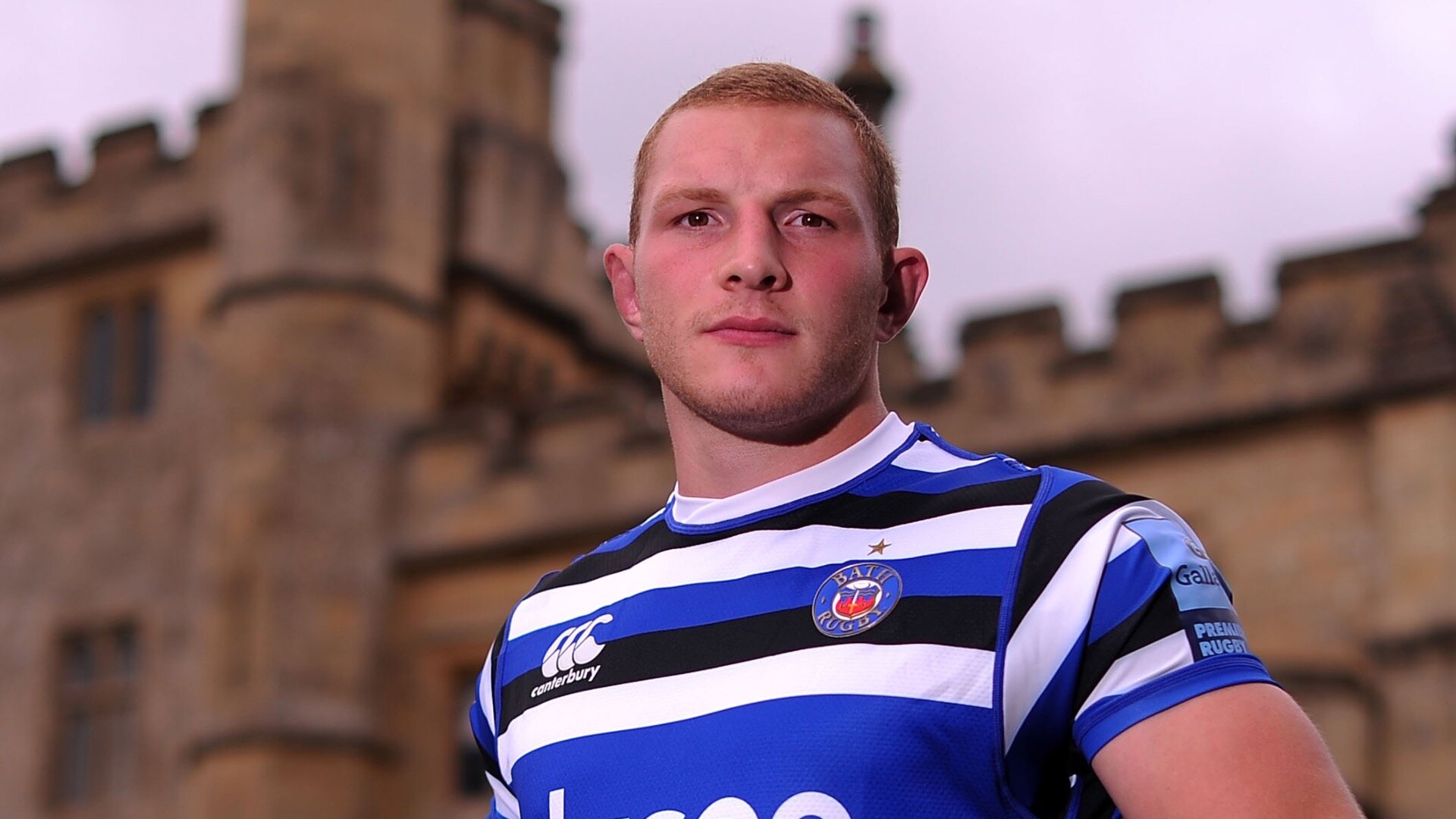'If you're over the ball and have two blokes over 100 kilos flying into you off their feet, it can be pretty difficult to survive'

Sunday at The Rec marked a milestone for Sam Underhill. Not since the 2015/16 season at Ospreys had the back row started 11 games in a domestic league season.
As someone who managed just four starts in his debut Premiership campaign at Bath last term, making his 11th in the 29-17 win over Wasps marked a triumph for the fetcher with the reputation as potentially one of the best in the business.
He may have missed the Six Nations with England, but that ankle injury didn’t massively hinder his availability to a club he joined in 2017 following a successful PRO12 apprenticeship in west Wales.
But here’s there rub. Having potential is one thing. Ensuring your body has the sufficient long-term robustness and durability to see this through to fruition quite another.
Underhill doesn’t want to come across in any way that he is moaning. It’s just that he more than a tad fed up with some refereeing interpretations surrounding the breakdown. It’s the wild west of rugby, a chaotic area where anything can go from one ruck to the next.
(Continue reading below…)
For a sniffer constantly on the scent of securing valuable turnover ball, as successfully witnessed when winning the penalty turnover that led to Bath’s bonus try move against Wasps, this lack of protection is a concern for a 22-year-old with a history of head injuries amongst his other setbacks.
Judging by his considered response to RugbyPass, it sounds as if he has been waiting for someone to ask him what actually can be done to better improve player safety in this most dangerous of areas in the sport, a situation where you have players foraging with their head down who then get blown away by other colliding into them like a tonne of bricks.
“Good question, great question,” he said, glad of the opportunity to give a No7’s insight into the mayhem that goes on in this type of collision.
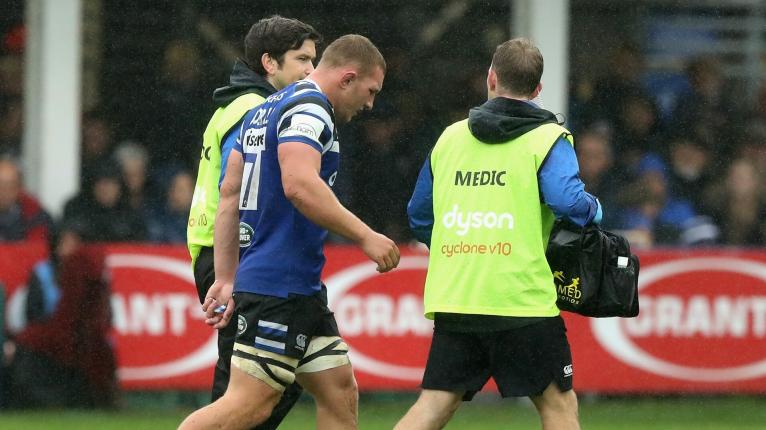
“The breakdown is one of the last grey areas of the game for me. The law at the moment is you have to make an effort to bind before you hit a ruck. The letter of the law is you make an effort to bind onto a player before you enter a ruck. That never happens.
“It doesn’t happen because it can’t happen. If you try and bind on to someone before you try and move them off the breakdown, you’re going to be there late and you’re not going to have enough momentum to get them off the ball.
“I understand it is the way the game is played and it’s commonly interpreted the same, but my issue is if all clean-outs are illegal by the letter of the law then you can’t differentiate between the bad ones and the okay ones.
“If everyone is breaking the law by not binding before they hit a ruck you can’t penalise the people that really don’t do it right, those who hit them hard, go off their feet and stuff.
“I’m not going moan about it because it is part of the game, it is how it is played at the moment, but it can be a bit confusing at times. I’d probably like to see it treated similarly to a tackle because that is effectively what a breakdown is now.
“It is sort of a tackle but the problem is you get a lot of them where there is no effort, there is no arms involved and players are flying in off their feet. It’s a lot of momentum. If you’re trying to get over the ball and have two blokes who are over 100 kilos flying into you off their feet, it can be pretty difficult to survive that.
?? | Vote now for your Performance of the Month for April.
1? Sam Underhill
2? Jonathan Joseph
3? Dave AttwoodRegister your vote here ?? https://t.co/LJERzPX7PB pic.twitter.com/4J3TEQULtN
— Bath Rugby (@BathRugby) May 3, 2019
“It’s sort of acknowledged that that is the way it is at the moment but I’d probably like to see the ambiguity cleaned up. Also for the refs because the refs have a hard enough job as it is being consistent in their interpretation and in being fair.
“For them they have got a pretty hard job because I don’t think the guidelines are particularly clear as to what is and isn’t okay – and you probably see that a spectator. It’s a part of the game but if you want to make the game safer and reduce injury rates, it’s probably a good place to start,” he continued.
“You know it [the impact] is coming but the physics of it are pretty difficult if you have got that much momentum coming at you that quickly, it is nearly impossible to survive that.
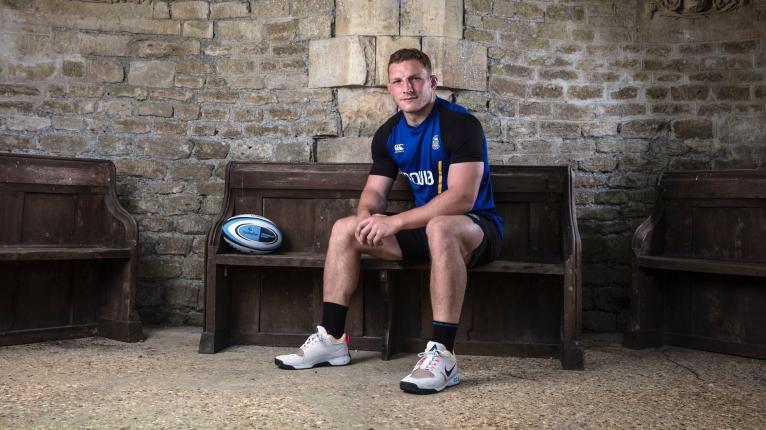
“If you have got the majority of clean-outs where there is two players and they’re both off their feet and neither of them are making an effort to do a wrap in any way, then you’re going to struggle to survive.”
Underhill’s switch to Bath was life-changing. Another season at Ospreys would have made him Welsh qualified, but proving himself in a Premiership where his previous experience was nine minutes off the bench during two seasons at Gloucester resulted in the former England under-18 player returning across the Severn on a three-year deal that now has 13 months remaining.
“Very fondly,” is his reply when quizzed on how he looked back on his stint at Bath so far. “I have really enjoyed my time here, really enjoyed it as a club. I didn’t really have a plan. I kind of learnt from my time at the Ospreys that if you have a plan it tends not to work out.
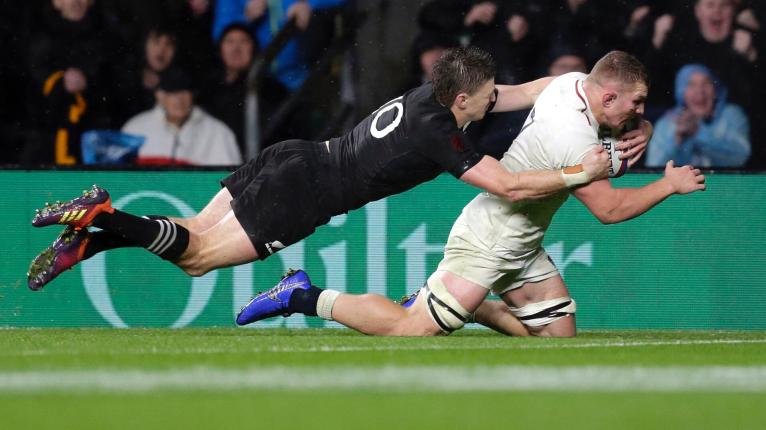
“My plan was to get to Bath, be fit all season and play really well. It turned out for Bath that I wasn’t fit for the majority of that first season. It was a bit of a hiccup. This season has been better and I’m hoping next season will be even better.
“I’m hoping it will be third time lucky fitness-wise. I have really enjoyed it here, learnt a lot, built some really good relationships and had some good times. It’s a good club to be around and I’m glad I made the move.”
Much of his work, though, continues to go unseen. Ask your regular rugby fan what memory they have of Underhill and it will invariably be that infamously disallowed try versus the All Blacks last November where be left Beauden Barrett for dead with his fleeted footed acceleration.
We were delighted to welcome @MelkshamRFC to Farleigh House last week for @GallagherUK's #TrainWithYourHeroes programme led by the @BR_Community
team.?? Some stars in the making ?? pic.twitter.com/9ztFmPaICV
— Bath Rugby (@BathRugby) May 3, 2019
“I guess it probably won’t happen again. It is what it is,” he said about that likely match-winning try ruled out for marginal offside by Courtney Lawes at a ruck. What matters most to the flanker is the respect his those he is in the trenches with.
“You’re probably most appreciated by your players and coaches. There is obviously a broader perception of you as a player, but the people whose opinions matter the most are the coaches I’m playing under and the players I’m playing with.
“They’re the ones who see the work that you do in the week and see the unseen work in the games and notice the smaller things. You look to those people as the barometer of how you’re doing and your performance.
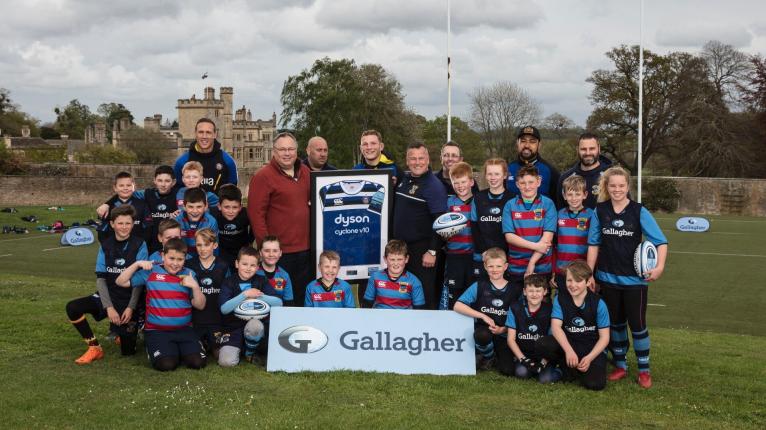
“I’d hope as a seven if you’re doing your job you’re probably not getting an awful lot of attention. If you’re doing your job well you’re probably going unnoticed. That is kind of how you want it to be.”
Currently in seventh, victory over Leicester on the final day of the regulation Premiership season on May 18 can earn Bath a Champions Cup qualification spot. After that, it’s the notice of England boss Eddie Jones that Underhill will be hoping to grab in time for Rugby World Cup selection.
“It would be unbelievable. It’s a childhood dream. You grew up playing in England, you want to play for England and you want to be at a World Cup. It would mean the world to me, but you can’t get too distracted by where you want to go. You have to focus on how you are going to get there. Playing well Bath will hopefully be rewarded with selection. If not, then so be it.”
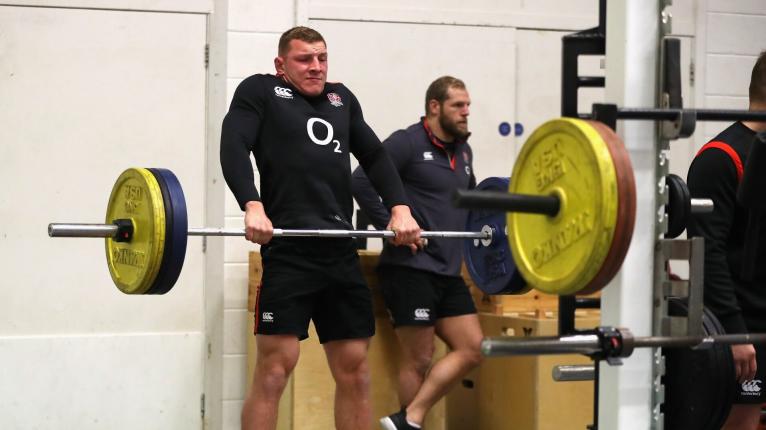
WATCH: The RugbyPass documentary looking ahead of the 2019 World Cup in Japan




























